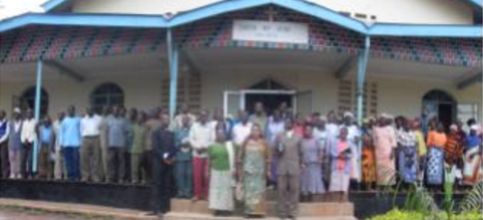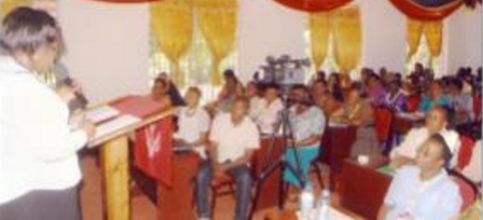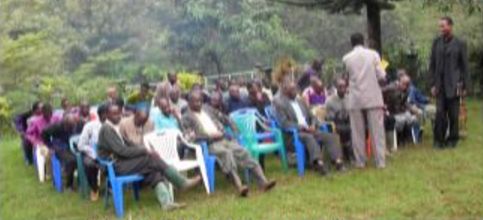ELCT
Press Release
Date:
December 1, 2015
Press release No. 001/12/2015
Non-clinical
HIV and AIDS Project: ELCT National Church Response
BACKGROUND INFORMATION
In May 2002
the Lutheran World Federation launched a campaign on HIV and AIDS aimed
at accompanying (LWF) member churches in their response. The campaign
main goal was to ‘break the silence’.
It is in that perspective that led ELCT to respond to the pandemic. It is from this truth the church invested much of its efforts by imparting knowledge to church leaders.
|
|
NON CLINICAL INTERVENTION
Church Based
Initiative on HIV and AIDS is a non clinical intervention adopted by ELCT
to complement a clinical intervention that is already in place. ELCT recognized
that the current approach on fighting HIV and AIDS as a health problem
does not offer holistic and comprehensive response to the pandemic. This
project officially started in year 2009.
The broad objective of this process is to see clinical and non-clinical initiatives undertaken and well coordinated in addressing HIV and AIDS pandemic for a better future.
The main goal of the project is to equip church leaders with skills and knowledge for their work and ministry in context of HIV pandemic.
ACHIEVEMENTS
Trained
pastors and evangelists have been proved to be very effective in providing
trainings in their areas.
There is clear evidence that the programme has impacted the life of project beneficiaries. The programme has also set a process in motion that will have long term benefit on the target group that benefitted from the interventions.
The programme has opened up the communication on HIV and AIDS related topics between youth and their parents or guardians, between different groups and between different gender groups. This is a major change at congregations, parishes, church districts, dioceses, community and household level.
We are delighted to see that to a great extent the magnitude of discrimination has gone down as a result of imparting necessary knowledge to church leaders. Discriminatory sermons are not common as it used to be. This is counted a big step forward.
The project has encouraged trained pastors to undertake resource mobilization at community level for sustainability of the programme.
Though the training has been proved to be effective – More needs to be done:
GROWN GENERATION
In Tanzania
there is a big number of grown generations of people born with HIV. It
is the role of the church to know where we are taking them.
MARRIAGE INSTITUTIONS
This area
needs to be a very large project. Married couple has diverse experiences
to share, especially in a nation where 58% of the entire HIV infected
population is married couples.
CULTURE AND HEALTH
The church
also needs to invest on culture by addressing the harmful practices by
working with men and boys to change norms related to fatherhood. Social
and cultural practices largely impede the strategy against HIV and AIDS.
Female Genital Mutilation (FGM), forced marriage; women inheritance, polygamy
and circumcision using the same knife have continued to be practiced.
WOMEN EMPOWERMENT
It is well
known that, women are more vulnerable than men. Women are potential and
the impact that they are able to make if empowered. They can save their
own lives, they can serve their husbands, and they can serve their families.
Women spend considerable time with their kids in nurturing process. From
an early age, boys may be socialized into gender roles designed to keep
men in power and control. Men grow up believing that dominant behavior
towards girls and women is part of being a man.
Mary Mmbaga
Coordinator
HIV Prevention Coordinator, ELCT
For further
information please contact us via:
E-mail: marychawe2004@yahoo.com
Mobile: +255
763 061 664
==================================================
Elizabeth Lobulu
Communication Coordinator,
Evangelical Lutheran Church in Tanzania
Box 3033, ARUSHA, Tanzania.
Phone: +255-27-250-8856/7
FAX: +255-27-254-8858
E-mail: Elizabeth Lobulu <ELobulu@elct.or.tz>
For more information contact:
Elizabeth
Lobulu
Communication Desk Officer, ELCT
E-mail: ELobulu@elct.or.tz


